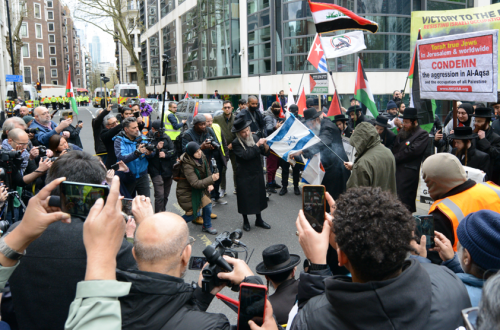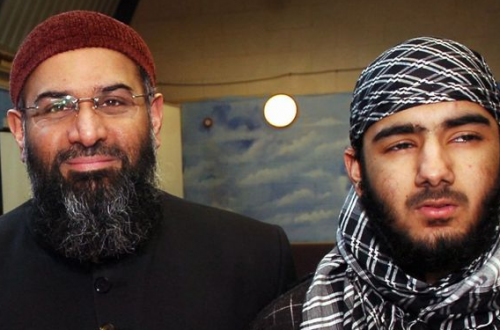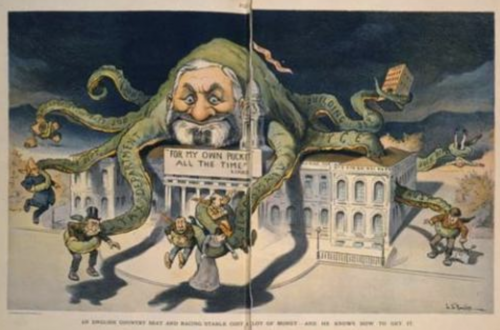Policy Exchange’s recent report into the views of British Muslims, prepared in conjunction with ICM, opens with a foreword by Labour MP Khalid Mahmood. It opens on a resoundingly positive note:
Britain’s Muslims are amongst the country’s most loyal, patriotic and law-abiding citizens.
This might come as a surprise to the reader who’d come to the report fresh from the Guardian’s coverage.
UK Muslims show worrying belief in conspiracy theories, claims thinktank
At first it might seem odd that the Guardian led with a negative finding, given the paper’s usual take on these debates – compare the more upbeat note struck by the Times:
Most Muslims want full integration with British way of life
However it soon becomes clear that the Guardian isn’t really targeting British Muslims, but Policy Exchange. The subsidiary headline reads:
Centre-right Policy Exchange, favoured by the government, says Muslim communities have separatist tendencies
This is a truly misleading summary of the report, which is keen to accentuate the survey’s many positive findings – for example Muslims’ higher than average opposition to terrorism and to political violence. You would think from the Guardian that those evil Centre-right extremists at Policy Exchange were intent on smearing all Muslims as terrorist sympathisers. But their real agenda was rather different. The first chapter opens:
A primary hypothesis, which this polling sought to test, was the intuition that Muslim priorities and interests are essentially secular and that like their non-Muslim neighbours, their primary focus is on the stuff of ‘daily life’: job prospects, housing issues, problems of crime, and questions about schooling.
Sometimes perhaps the writers’ keenness to counter more ‘normative’ assumptions about British Muslims led them to draw conclusions which weren’t fully earned by the survey.
Most recently, the Muslim Council of Britain declared plans to launch a rival scheme to Prevent, which it said lacked support among Muslim communities. Yet, as our survey suggests, there is majority Muslim support for a range of government interventions to help combat the allure of violent extremism. And this is not to mention the obvious point that, as already mentioned, the MCB itself can scarcely lay claim to significant levels of support among British Muslims. This was born out by a further question in which respondents were asked who should take ‘primary responsibility’ for deterring radicalisation. Whilst 38% of people said ‘Muslims themselves’, 29% said ‘the government’.
I don’t think it’s clear that those 29% of Muslims who wanted the government to take ‘primary responsibility’ for deterring radicalisation were fans of Prevent. Some probably were – but others may have thought the government should act by changing the direction of its foreign policy.
This is a very interesting report, full of detail and nuance. Drilling down into answers about, for example, Sharia law, reveals that the fuller picture is softer and more pragmatic than the headline figure might suggest. Other findings are more worrisome – and the Mail chose to lead with these, and them soup them up some more (it’s not fully accurate to say that 96% of Muslims didn’t believe Al Qaeda carried out 9/11 when 52% said they didn’t know).
One thing which emerged very clearly from the report was a negative stance towards the Muslim Council of Britain. I felt this led the writers away from objectivity on occasion. For example on p. 31 of the report a chart demonstrates that only 20% of Muslims would choose to engage or influence local or government officials via a Muslim organisation. This is cited as evidence that Muslims:
do not feel a need for special representation from either political parties, or from groups that purport to represent specific ‘Muslim’ interests.
But in response to another question (see the chart on p. 33) it becomes clear that most Muslims might, on occasion, like to use a Muslim organisation to engage with government. I assume that the first question may have put them in mind of issues such as potholes or benefit cuts whereas the second made them think about more Muslim-specific concerns.*
Similarly, although I sympathise with this bullet point from the executive summary, I don’t think its argument fully works.
Government must not fall back into the trap of looking to “gatekeeper” Muslim organisations like the Muslim Council of Britain (MCB) – whether at a national, or local level – to deliver or represent the views of this diverse sub-group of the general population. British Muslims have fundamentally secular interests and priorities, and they should not be left hostage to the whims of groups that do not speak in fact for them.
There have clearly been huge problems with reliance on dubious gatekeeper organisations over the years, and the MCB have a chequered track record. However there is no inherent disconnect between Muslims having ‘fundamentally secular interests and priorities’ and a possible role for the MCB. Muslims, as the report acknowledges, identify as considerably more religious than the wider population, so might be more inclined to turn to a communal organisation of some kind. Whatever one thinks of the MCB (and they certainly don’t represent Ahmadi Muslims) it at least seems better placed to engage with those secular Muslims highlighted in the report than 5Pillars or Islamc21. However my point isn’t to defend the MCB – there are plenty of grounds on which they might be criticised – but simply to question the logic behind marshalling the findings of the survey in order to support the claim that they are seriously out of tune with British Muslim thinking.
* Update] – apologies – in fact that second question was apparently only asked to those who expressed an interest in turning to a Muslim organisation in the first place, i.e. a small subset.


